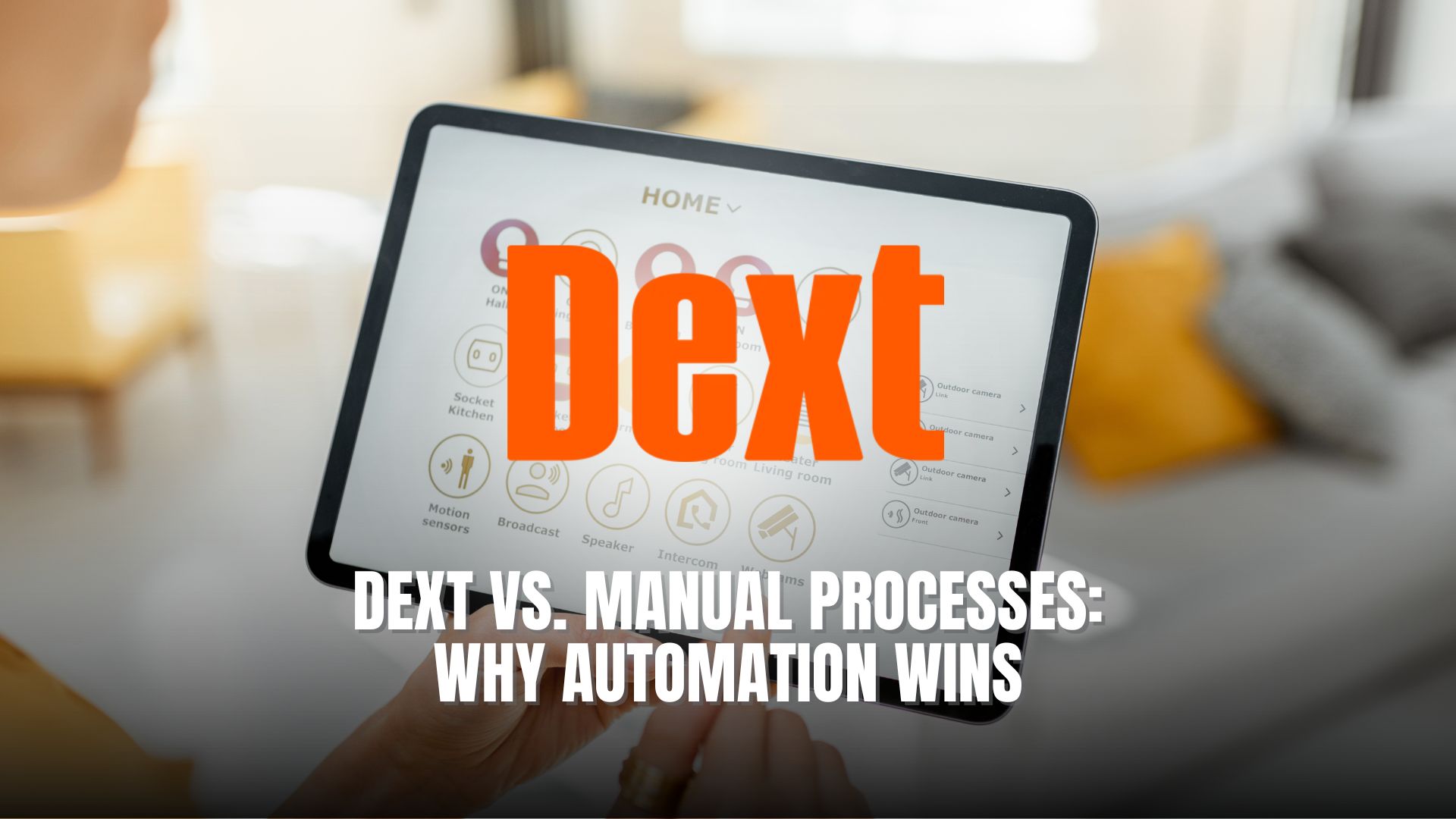Dext vs. Manual Processes: Why Automation Wins Every Time
-


Managing business finances is no easy task, especially when relying on manual processes. From tracking expenses to preparing for tax filings, the traditional methods of bookkeeping are often time-consuming, error-prone, and inefficient. This is where Dext accounting software steps in to revolutionise financial workflows. By automating data entry, expense management, and reporting, tools like Dext streamline operations, saving businesses valuable time and money.
In this article, we’ll compare Dext to manual processes, outline its benefits, and demonstrate why automation wins every time.
The Drawbacks of Manual Financial Processes
- Time-Consuming
Manual bookkeeping involves logging receipts, creating spreadsheets, and reconciling accounts, which can consume hours or even days. This leaves less time for businesses to focus on strategic growth. - Prone to Human Error
Mistakes in data entry, missed invoices, and incorrect calculations are common in manual processes. These errors can lead to financial discrepancies and compliance issues. - Lack of Real-Time Insights
Manual processes lack the speed and efficiency needed to provide real-time financial insights. Decisions are often made based on outdated data, affecting business performance. - Difficulty Scaling
As businesses grow, manual processes become more complex and harder to manage. Without automation, keeping up with increasing transactions and paperwork can overwhelm staff.
Why Businesses Are Switching to Dext
1. Automated Expense Management
Dext Prepare allows users to automate the process of capturing and categorising receipts, invoices, and bank statements. By uploading documents via the Dext app, users eliminate manual data entry.
Explore Dext Prepare here.
Automation reduces human error and ensures that expense data is recorded accurately in seconds, not hours.
2. Seamless Integration with Accounting Software
Dext integrates effortlessly with leading accounting platforms such as QuickBooks, Xero, and Sage. This means businesses can sync their financial data directly without the need for manual uploads or reconciliation.
Manual processes often require redundant data entry, but Dext removes this hassle. Learn more about Dext’s integrations on the Dext Deals Page.
3. Real-Time Financial Insights
Dext provides businesses with real-time financial insights, enabling better decision-making. With Dext Precision, users can monitor their data for errors, duplicates, and inconsistencies, ensuring their accounts remain accurate and audit-ready.
Manual methods lack this level of detail and speed, making Dext a clear winner for businesses aiming for financial clarity.
4. Time Savings with AI-Powered Automation
Powered by Dext AI, the software automates tedious bookkeeping tasks like data extraction and categorisation. Dext’s AI capabilities allow accountants and business owners to focus on higher-value tasks.
For example, uploading a document to Dext takes seconds, while manually recording the same information can take 5-10 minutes. Multiply this across hundreds of documents, and the time savings become substantial.
5. Improved Collaboration
Dext’s cloud-based platform allows teams to collaborate effortlessly. Accountants, bookkeepers, and business owners can access financial data in real-time, ensuring seamless communication and reporting.
Manual processes, on the other hand, rely on physical documents or fragmented files, which can delay collaboration.
Key Features of Dext Accounting Software
- Receipt and Invoice Capture – Upload receipts through the Dext mobile app or desktop for instant categorisation.
- AI-Powered Automation – Reduce human effort with intelligent data extraction.
- Integrations – Sync with platforms like QuickBooks, Xero, and Sage for seamless workflow.
- Real-Time Insights – Monitor financial performance and identify errors with Dext Precision.
- Scalability – Designed to support businesses of all sizes, from freelancers to enterprise clients.
Learn more about Dext’s pricing and plans.
Alternatives to Dext for Financial Automation
While Dext is a powerful tool for financial automation, there are several competitors to consider based on your business needs:
- Hubdoc – Document management and data capture tool for accountants and small businesses.
- AutoEntry – Automates invoice and receipt data entry for businesses.
- QuickBooks Online – A robust accounting software that integrates with expense management tools.
- Receipt Bank (now Dext) – Formerly Receipt Bank, Dext remains the preferred solution for expense management.
- Expensify – Streamlines expense reporting and approval workflows for businesses.
- Xero – A complete accounting platform for small businesses, with expense management features.
- Zoho Books – Accounting and expense tracking solution with scalable features.
- Wave Accounting – Free accounting software for small businesses with expense tracking.
- FreshBooks – Cloud-based accounting software tailored for freelancers and small businesses.
- Sage Business Cloud – Comprehensive accounting and finance management software.
Subscribed.FYI: Your Go-To Platform for SaaS Savings
Switching to automated solutions like Dext can drastically improve your financial workflows, and platforms like Subscribed.FYI make it easier to get started. Subscribed.fyi allows businesses to explore, compare, and save on leading SaaS tools, including Dext.
- Unlock exclusive deals on 100+ SaaS tools with savings up to $100,000 per year.
- Effortlessly manage all subscriptions, track expenses, and streamline your SaaS stack in one place.
- Compare tools like Dext, Hubdoc, and AutoEntry side-by-side to make informed decisions for your business.
Explore the best deals on Dext here, or visit Subscribed.FYI to unlock your secret savings today!
Relevant Links
- Dext
- Dext Deals
- Subscribed.FYI Main Page
- Hubdoc
- Autoentry
- Quickbooks Online
- Expensify
- Xero
- Zoho Books
- Wave Accounting
- Freshbooks
- Sage Business Cloud








